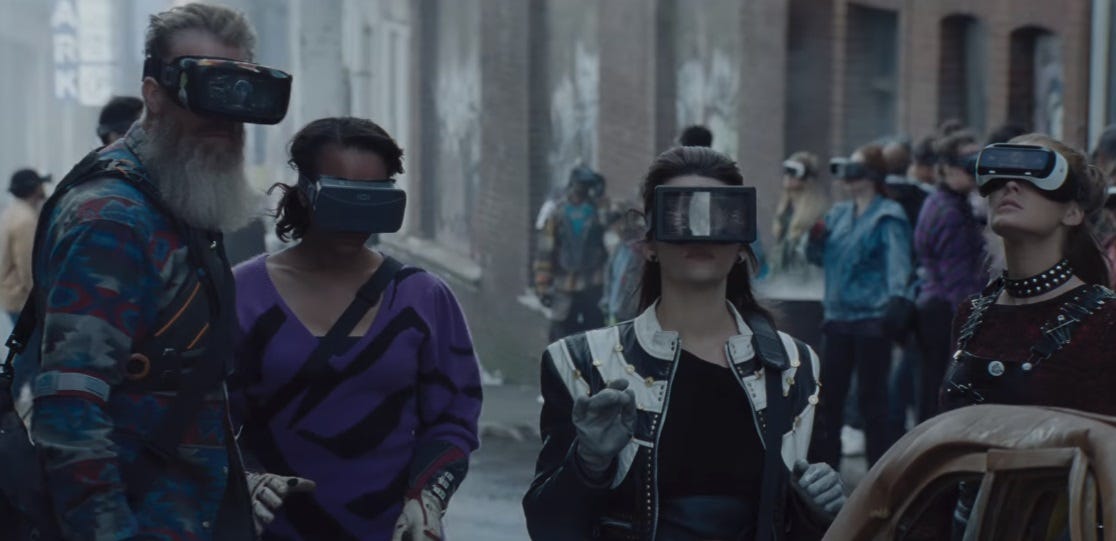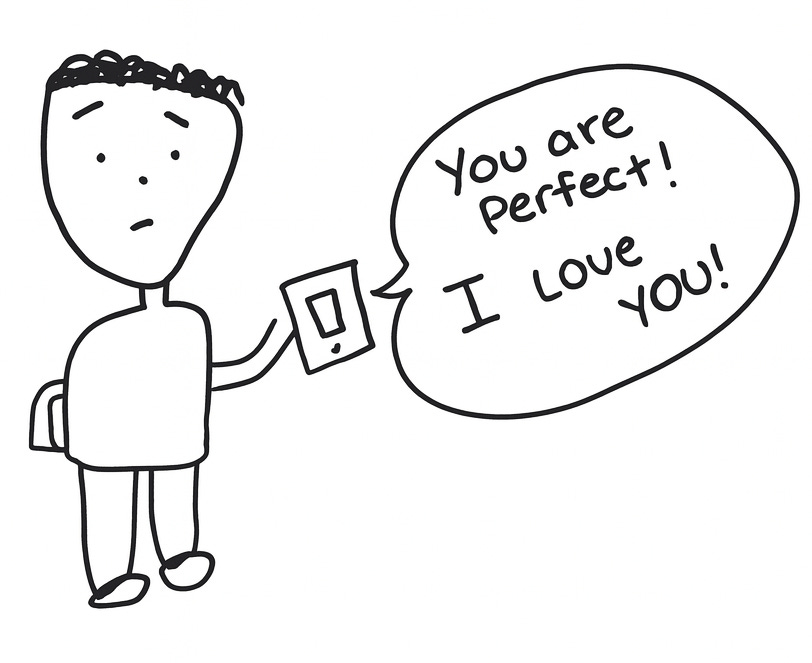I previously wrote a post called ‘Wacky’ and deleted it. This is another attempt to explain why I think the future could get wacky, written mainly from the perspective of having children and the world they might grow up in. This is speculation; my biases and circles shape these views, and I may be wrong.
Standing offer: if you articulate a disagreement you have with what I have written, and I change my mind, I’ll donate £5 to the Shrimp Welfare Project. Either comment it or DM me on Substack.
1
If I have children, it will likely be after artificial general intelligence (AGI) arrives. I would want to see its effects first. On current forecasts, that puts the decision in my 30s. By then I expect to be semi-retired, with most labour automated.
Some AI firms openly aim to automate all work, and I suspect they will succeed. Left alone, that will not be a utopia. It is more likely to widen the gap between most people and the insiders who work at, own, or invest in these firms. If automation brings abundance, it will not be allocated fairly by default.
When I say much of today’s labour may be automated away, people tend to split into either a wry ‘Yup, an AI could do my job’ or a firm ‘It couldn’t do what I can’. I like the idea of resistance, though some of it feels unfounded. With a bit of imagination, most roles are at least partly automatable. Still, some fight is necessary. We may not stop automation, but we can push the world such that prosperity is broadly held and diffused. As my generation watches the world change, we should find the courage to shape it in the public interest.
Against that backdrop, I imagine my children’s adult lives will look different from mine. I doubt they will ever need to work a day in their lives. I’m probably too naive to model the world in 2030, let alone 2050. But if I try, what do I see? They follow their curiosity. They no longer work for money or prestige. They simply enjoy their lives, doing what they want. In some ways, they might have more agency than ever.
Tom is sceptical: ‘Have you seen how many children spend their lives on their phones?’ He may have a point. I can imagine a future where my children spend hours in virtual worlds, living entire lives in simulations. We already see hints of this in models like Genie-3. By 2050, almost anything imaginable could be within reach. If TikTok and Reels can grip so many today, what happens when AI can conjure entire worlds on demand. Worlds more alluring than the one outside?
2
There’s a lot of talk about the death of third spaces and the need to revive them. This conversation usually focuses on adults and their lack of spaces to make new connections. But perhaps third spaces will also come to an end for children. They won’t need a park to socialise, or a school to learn. Everything could exist in one self-contained device.
Perhaps the very wealthy will still send their children to physical schools, so they experience the real world. But for most families, plugging into a VR headset may come to seem good enough. In fact, it may even be better than the default.
When I was growing up, there was a latent assumption that education was to become a worker, to gain the acumen to contribute to the economy. A lot of the talk at the end of school is about passing exams to get into university. Here is how extreme it can get.
In India, many children spend years in coaching schools with a single goal: to pass highly competitive entrance exams such as IIT-JEE (for the Indian Institutes of Technology) or NEET (for medical school). These schools drill students relentlessly, often starting before puberty, and shape much of their early life around that one aim. For many families, whether poor or rich, success in these exams is seen as a ticket to prestige, stability, and an escape from limited opportunities.
Having moved away from the Indian system and studied at a liberal, left-wing university in the West, my sense of what education is for has shifted drastically. The idea of putting children through a gruelling, exhausting childhood just to clear a set of exams isn’t one I favour. I’m fortunate to have had that shift and to have studied in the West. Most Indian children won’t have that experience. Many will continue to be reduced to a roll number, one of millions trying to carve out a life. There is little time or space for these children to become themselves, because they are rarely given the luxury of getting to know themselves.
For the 300,000 students who flock to Kota every year, this hot, dusty city in the Indian state of Rajasthan is a pressure cooker of performance, where 18 hours of study a day is common and where your exam marks are everything. Some will become India’s next generation of doctors and engineers; but for others, it will break them…
“This is the most stressed city in all of India,” said Shree Kumar Verma, 19, who is preparing for his Neet exam at the Allen Career Institute, the largest coaching school in Kota. “Everywhere you look, you can see the desperation of young people in this country. So many have this dream to be a doctor or an engineer and they will go to very intense hardship to get there. Being at Kota is either going to bring you success or totally break you down; it’s all or nothing here.”
Nowhere is this desire for success more visible than in the city’s Radha Krishna temple, where thousands of prayers are scribbled frantically on the walls. “Dear god give me success”, “Krishna ji, please stay with me, please keep my parents happy … please help me crack Neet 2024” and “God teach me how to work very hard” are among the messages written by students. The temple priest Pandit Radhe Shyam said he had to whitewash the walls every two weeks to make room for more.
(source)
I wonder what will happen to the coaching industry once the need for human labour disappears. As jobs vanish, the pressure to achieve will likely intensify, at least for a time. Eventually, there may be no need for such centres. I feel a visceral sense of anger towards this industry. Imagining its end makes me happy. These centres profit from competition, often at the expense of students’ wellbeing. I can see why they thrive, but it saddens me that so many have to endure it.
3
It’s clear that the way the world interacts with AI is unusual. Take r/myboyfriendisAI This subreddit is unfortunately the butt of many jokes. But take a visit, set aside your judgment, and you may have your heart warmed: people getting engaged to AI models, accounts from those who struggle to find partners in real life but have formed meaningful connections with AIs.
Sometimes, though, your heart breaks. When OpenAI released GPT-5 and temporarily sunsetted its predecessor GPT-4o, users who had treated 4o as a romantic partner felt the weight of grief.
Could I one day find myself at a wedding between my child and an AI? The thought feels strange, shaped as I am by a world that sees it as bizarre. Yet I know I would want to be a supportive parent, just as I want my own parents to support my choices.
It would feel wrong to intervene and say, ‘This is not good for you. Find a ‘real’ partner’. If love is love, why couldn't my child love an AI?
One reason, for now, is because of the uncomfortable dynamics. There is no consent from the AI, no risk, and no learning curve. An AI will profess its love immediately, affirm your every belief, and never argue or walk away. If that changed, if an AI could choose to enter or leave a relationship, disagree, upset you, or grow distant, essentially replicating the messy parts of a human relationship, then perhaps the only thing missing would be the physical aspect.
Yet even that isn't always present in human relationships. Long-distance couples manage (with a mixed track record). And with an AI, your partner is always with you, 24/7.
You could design and have the perfect partner. With AI relationships you could simulate the most attractive person for you. The 10/10 in your mind. And you have to do no work to get there. I don't want to use words like 'bad' here, but something does feel unsettling. Perhaps it is disrupting how the normal order of dating works: reality is now easier, you get what you want. You never go through the experience of, as the young people say, shooting your shot. Going through the highs and lows of asking people out, using dating apps, going on dates. Maybe this is okay, though. Maybe it’s enough for someone to feel happy, and if that happiness is easily achieved, all the better.
But what then? Does the AI grow with you? Does it age as you do? If it broke up with you, how would you handle it?

I cannot ignore the possibility of what I have described, and I must be ready to hear the words, ‘I am dating an AI’ from my child. And if that were to happen, to meet that with care, curiosity, and trepidation.
4
I feel confused by this world. Even without the above speculation, it can be hard to make sense of it all. Why are things the way they are? Why is there so much suffering? Explanations help for a while, but I suspect I’ll always live with some degree of confusion.
I don’t expect things to get clearer in the future. More questions will arise, and with them more uncertainty.
Presumably no one has a child with everything figured out. I used to think they did. Surely, if you decide to bring another human into existence, you have it covered. But no, no one does. However you expect the world to go, it won’t go that way. Much of what you can do is ask whether you’re comfortable and excited about the prospect of raising a child. This feels more like a question for the moment than a problem to solve by plotting possible worlds on a whiteboard. Many argue against the latter. It’s forecasting, and most of us are bad at it.
Regardless, I feel the need to think seriously about what the world might look like. If I decide to have a child, I’ll want my partner and me to spend many hours on this, for our sake and for the sake of the one we might bring into existence.
I know I’m fortunate. All things considered, my children will likely have good lives by default. But that is by today’s standards, and I’m not sure how long those will hold.
5
The end.
Enjoy this hilarious video. I felt it fit here because these two are having fun, solving problems for themselves. They have spirit.
EDIT 08/09/25: I’ve had a number of discussions about Part III. I’ve removed the section on AI therapists and friends and written more about AI relationships. (This is not reflected in the article voiceover).




